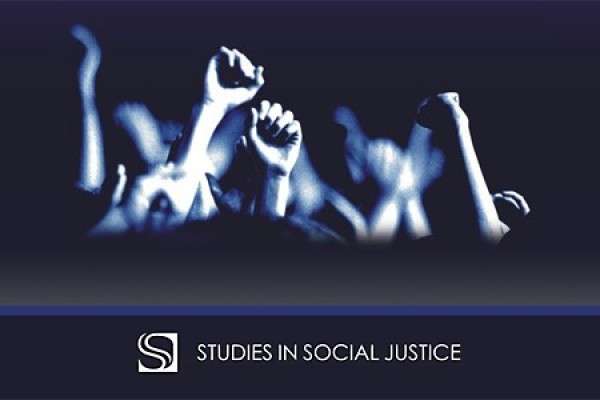 The latest edition of Studies in Social Justice focuses on “Justice after Violence: Critical Perspectives from the Western Balkans.”
The latest edition of Studies in Social Justice focuses on “Justice after Violence: Critical Perspectives from the Western Balkans.”
Centre for Studies in Social Justice
 The latest edition of Studies in Social Justice focuses on “Justice after Violence: Critical Perspectives from the Western Balkans.”
The latest edition of Studies in Social Justice focuses on “Justice after Violence: Critical Perspectives from the Western Balkans.”
The nature of employment is evolving, says the Law Commission of Ontario in its December 2012 report on vulnerable workers and precarious work.
“The standard employment relationship based on full-time, continuous employment, where the worker has access to good wages and benefits, is no longer the predominant form of employment, to the extent it ever was,” the report says. “Today more work is precarious, with less job security, few if any benefits and minimal control over working conditions.”
Over the last few years, the world has witnessed a wave of mass protests against authoritarianism, corporate monopoly, privatization, and the decline of social protections.
The High School Social Justice Forum held on campus Tuesday hit home for Madeline Doornaert.
“I learned how people were excluded from society through history,” she said as the day’s events wound down. “Someone close to me has a mental disability, and I really learned a lot about their situation.”
With a theme of “Networks of Social Justice: Transnational Activism and Social Change,” the latest issue of Studies in Social Justice is now available online.
A forum to promote social justice has given them ideas to bring back to their home school, say Laith Al-Kinani and Eva Yeverovich, grade eight students from Giles Campus French Immersion Public School.
“Today’s youth can be oblivious to social injustice,” Al-Kinani said Thursday, at the conclusion of the forum held in the Odette Building. “I think this forum is a really great idea.”
The Centre for Studies in Social Justice invites nominations for its Social Justice Project of the Year Award. This year the centre wishes to honour a student group. Eligible nominees include student groups whose projects have demonstrated an outstanding commitment to the rights of the marginalized or oppressed, the health of people and the environment, or the well-being of animals.
Nominations should include:
The latest edition of Studies in Social Justice focuses on “the Politics of Resilience and Recovery in Mental Health Care.”
Article titles include:
Canadians usually learn about their history from the perspective of rulers—from the top down. Author Scott Neigh aims to explore the perspectives of ordinary people—from the bottom up.
“Whatever liberty and justice that communities, workplaces and individuals in Canada enjoy are due to the many struggles and social movements in our country’s history,” says Neigh. “Yet the stories and histories of those movements to overcome racism, sexism, and poverty, for example, remain largely untold, thanks to the single, simplistic national story taught to us in school.”
The 1972 movement of Asians expelled by Ugandan dictator Idi Amin was the first test of Canada’s “universal” immigration policy as applied to refugees. Former diplomat Michael Molloy will examine the reasons behind Amin’s decision and the Canadian reaction in a free public lecture Monday, October 15, at 7 p.m. in room 105, Memorial Hall.




